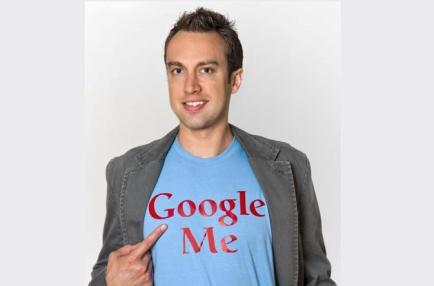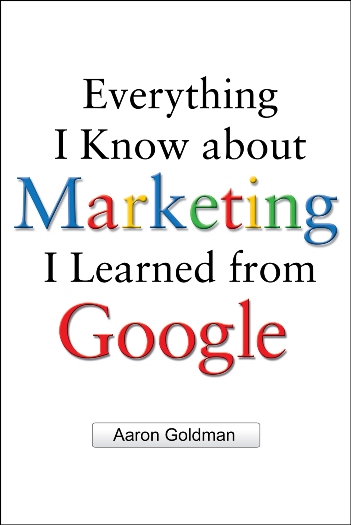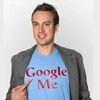Everything I Know about Marketing I Learned from Google - Aaron Goldman - MediaBizBloggers

The following is an excerpt from the new book, Everything I Know about Marketing I Learned from Google, by Aaron Goldman.
Chapter 4: Mindset Matters
Why do search ads on Google work so well?
According to comScore, following a click on a search ad, about 4 percent of visitors to retail Web sites complete an online purchase transaction within that same session. This compares to roughly 1 percent for online display ads in November 2009.
Why are conversion rates on Google ads so strong?
Because they're so relevant, right? Yes, but that's only part of it.
Because they tap the wisdom of crowds to rank the best ads at the top, right? Yes, but . . .
Because they're stupid simple, quick, and to the point, right? Yes, but . . .
I think there's one attribute of Google ads that, more than any other, belies their success. To explain, let's turn the mirror around.
Where do you turn when you're looking to buy something?
Where do you turn to research different products and brands?
Where do you turn when you know what you want to buy but aren't sure where to buy it?
Where do you turn when you know exactly what you want to buy and where you want to buy it?
If you said the Yellow Pages, then put down this book, because it's probably time to catch a nap before the nursing home serves your next meal. And ditto if you said "the Google."
[GoogleyLessons.com/OnionTheGoogle]
Relocating and need moving supplies? Google it.
Considering renting a moving truck versus hiring movers? Google it.
Want to find the closest store that sells moving boxes? Google it.
Know you want to buy bubble wrap from the local FedEx Office and just need to find out when the store closes? Google it.
New Habits Die Hard
Gord Hotchkiss, president of Enquiro Search Solutions, a search marketing firm based in British Columbia, likes to draw from Peter Pirolli's book Information Foraging Theory when explaining how Google became so ubiquitous.
"When we search for information online, we borrow a strategy that's as old as our species, the strategy to find food. And, just like searching for food, we look for hints in our environment about the best path to take to find information. We want to expend the least amount of energy necessary to find the best source of food. That's a hardwired strategy that's necessary for survival—calories in must always be greater than calories out. We adapt this same strategy in our information seeking."
This is where Google comes in as, what Hotchkiss calls, a great "food patch." He explains, "It's easy to use, [and] it does a great job of categorizing and providing 'scent'—the hints on where the best information might be, in the form of links."
Best of all, per Hotchkiss, Google is a "meta-patch" in that "it's the connector to all the information patches that may exist." "In fact," Hotchkiss points out, "in certain cases, it can become a patch unto itself. . . . If I'm looking for a zip code, a date, a phone number, or the weather in a location, I never have to go beyond the search page."
In other words, Google has become our mental crutch. And the mind is a powerful thing to exploit.
Framing the Mind
Indeed, when it comes to marketing, mindset matters more than anything else.
You can have the most powerful, relevant message delivered by the most trusted source, but unless your customer or prospect is in the right frame of mind, the message will fall on deaf ears.
And what frame of mind are we looking to reach people in?
Commercial -- as in "buy mode," not watching commercials. Google ads perform well because they reach people in a commercial mindset.
It's for this reason that Google ads account for $20 billion in spending each year and command over 30 percent of all online media dollars.
Aaron Goldman is the Founder and Principal at Connectual, where he puts lessons learned from Google to good use in digital marketing consulting and matchmaking. You can learn more about Goldman's book and order your copy at GoogleyLessons.com.


